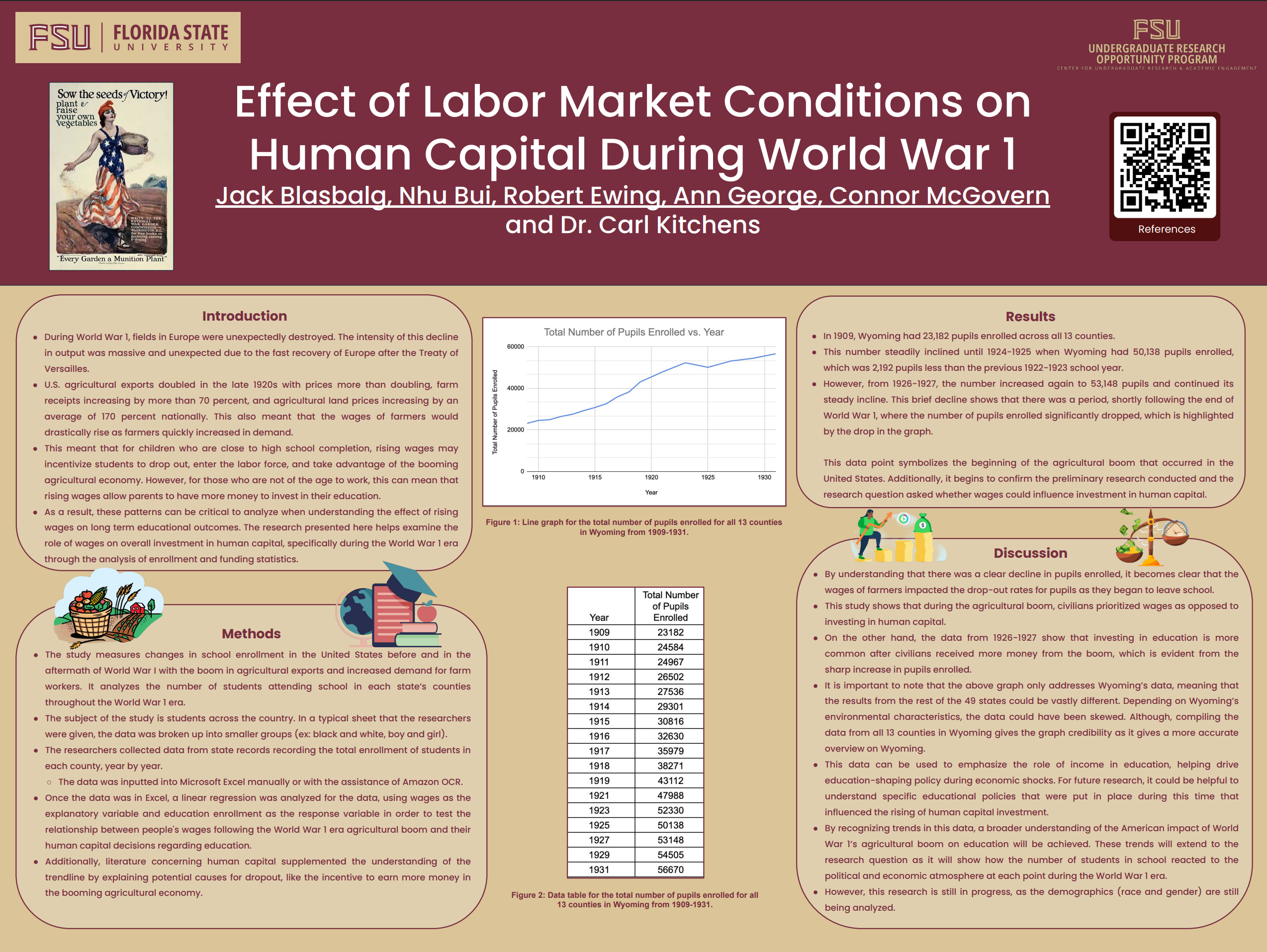Research Symposium
25th annual Undergraduate Research Symposium, April 1, 2025
Connor McGovern Poster Session 1: 9:30 am - 10:30 am / Poster #30

BIO
My name is Connor McGovern and I am a sophomore at FSU, originally from Springfield, Pennsylvania (which is right outside of Philadelphia). I am studying economics but I am considering double majoring in Digital Media Production, as film is my real passion. I love watching movies and TV shows (week-to-week if possible), hanging out with friends, playing the saxophone, following the stock market and business news, screenwriting, and filmmaking.
Effect of Labor Market Conditions on Human Capital During World War 1
Authors: Connor McGovern, Carl KitchensStudent Major: Economics
Mentor: Carl Kitchens
Mentor's Department: Economics Mentor's College: Social Sciences and Public Policy Co-Presenters: Ann George, Nhu Bui, Robert Ewing, Jack Blasbalg
Abstract
This investigation explores how labor market conditions during World War 1 influenced long-term educational outcomes. The relationship between rising wages and human capital investment was examined across a variety of youth age groups. This research was conducted by transcribing data from historical publications into Microsoft Excel, either manually or with the assistance of OCR, analyzing this retrospective data, and supplementing this understanding through further review of human capital literature. Additionally, data analysis was conducted through a linear regression tests to assess the relationship between wages and human capital decisions. Preliminary results indicate that World War 1's agricultural boom led to distinct effects on various age groups of students. For older children, meaning those nearing high school completion, this boom incentivized entry into the labor force due to immediate earnings. However, for younger children just beginning school, higher wages facilitated a rise in educational investment due to increased income within parents. the preliminary results of this study suggest that older students prioritized immediate earnings over investment, whereas educational investment was more attainable with younger children due to household income increases. This research can provide insights as to how the labor market can influence educational and societal issues on a level that is relevant today. By emphasizing the role of income in education, this can influence how policy develops to encourage the rise of human capital investment.
Keywords: Economics, Education, Wages, Agriculture

